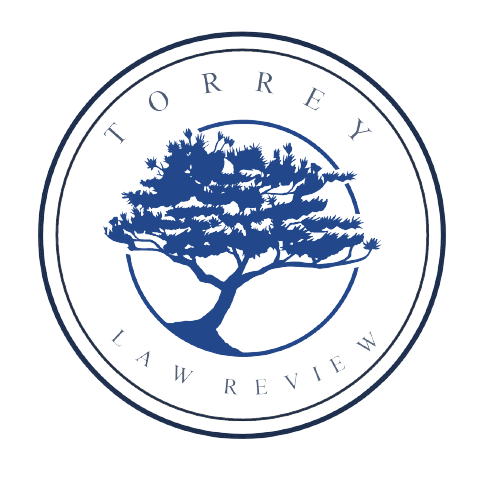Ambach v. Norwick
Click on the PDF link below for the full version including footnotes.
Introduction
Each state has its own laws and regulations which set forth the criteria to determine the eligibility for government positions, such as police officers and teachers. Section 3001(3) of the New York Education Law states that “No person shall be employed or authorized to teach in the public schools of the state” if the person is “[n]ot a citizen,” unless they “make due application to become a citizen.” This statute has been challenged as a violation of the Equal Protection Clause of the Fourteenth Amendment, which states that no state may deny any person within their jurisdiction the equal protection of the laws. Ambach v. Norwick is the seminal case that held that it is not a violation of the Equal Protection Clause to prohibit non-citizens from teaching in a public school, because it is a government function.
Facts
Susan Norwick was born in 1951 in Scotland, but has resided in the United States since 1965 and is married to a United States citizen. In 1974, she applied to the New York State Department of Education for certification as a public-school teacher in the state of New York. Ms. Norwick had complied with all of the necessary educational requirements that New York State had set out for certification as a public school teacher, but was denied certification by the New York State Department of Education for failing to comply with the requirements set forth under Section 3001(3) of the New York Education Law. Ms. Norwick challenged the statute in court, arguing that it violated the Equal Protection Clause of the Fourteenth Amendment.
Legal Background
Norwick first sued in the Southern District of New York, where a three-judge court ruled that the statute in question violated the Equal Protection Clause by discriminating against foreign-born aliens. The court held that the statute was too overbroad, as it prevented all foreign-born aliens who did not declare their intention to obtain citizenship from obtaining certification as public-school teachers. The statute was deemed overbroad because it disallowed all such aliens from being certified, regardless of the subject they taught, their relationship to the country, or their willingness to demonstrate their loyalty to the country through means other than obtaining citizenship. The case was appealed to the Supreme Court.
Holding & Reasoning
The Supreme Court held that Section 3001(3) of the New York Education Law does not violate the Equal Protection Clause, which declares that no state may pass or enforce a law that “abridge(s) the privileges or immunities” or “deny to any person within its jurisdiction the equal protection of the laws.” The majority opinion asserted the state’s interest in tasking teachers with “an obligation to promote civic virtues and understanding in their classes, regardless of the subject taught.” The statute furthered this interest, in that it affected only non-citizens who did not want to seek citizenship.
Furthermore, the Court held that the statute was constitutional because it satisfied the “rational relationship” test required by Foley v. Connelie. The Court in Foley v. Connelie held that the exclusion of aliens from government functions was constitutional if there was a rational relationship between the law and a legitimate state interest, also setting the “rational relationship” precedent; the exclusion of aliens from basic governmental activity was constitutional provided the exclusion protected a legitimate state interest.
Lastly, the Court in Ambach v. Norwick held that one who refused to seek citizenship could not reasonably be expected to encourage students to develop the proper relationship with the government that the teacher themself decided not to seek out. Justice Powell authored the 5-4 decision, arguing his support for the statute by stating that “teachers play a critical part in developing students’ attitude toward government” and that “[their] influence is crucial to the continued good health of democracy.” Powell cited the landmark case Brown v. Board of Education, quoting the line “[education] is the very foundation of good citizenship,” and ultimately determined that “some state functions are so bound up with the operation of the state as a governmental entity as to permit the exclusion from those functions of all persons who have not become part of the process of self‐government.”
Analysis
Susan Norwick was foreign-born but began residing in the United States in 1965. She met all criteria for certification as a public-school teacher except for declaring her intention to obtain citizenship, and was denied certification by the New York State Department of Education for failure to do so. Because the law applies only to those who neither obtain nor state their intention to obtain citizenship, it does not violate the Equal Protection Clause. Norwick is not denied equal protection of the laws because she was not restricted from seeking to obtain citizenship; she simply refused to do. Had she stated her intention to obtain citizenship, she would have been granted certification. Foreign-born residents are able to be certified by the New York State Department of Education if they declare their intention to obtain citizenship, and are not barred from receiving certification on the basis of their race, ethnicity, or citizenship status. Additionally, the Court followed the precedent it set in Foley v. Connelie, when it concluded that states had the power to exclude aliens from “basic functions of government” provided there is a “rational relationship” between a state’s interest and the law excluding aliens. The statute in question in Ambach v. Norwick protects a legitimate state interest: its educational goal of “developing students’ attitude toward government and understanding of the role of citizens in our society.” In sum, there is a rational relationship between New York Education Law Section 3001(3), excluding foreign-born residents who decline to pursue citizenship from public school teaching, and a legitimate state interest in shaping students’ attitudes around their role in society and the democratic process.
